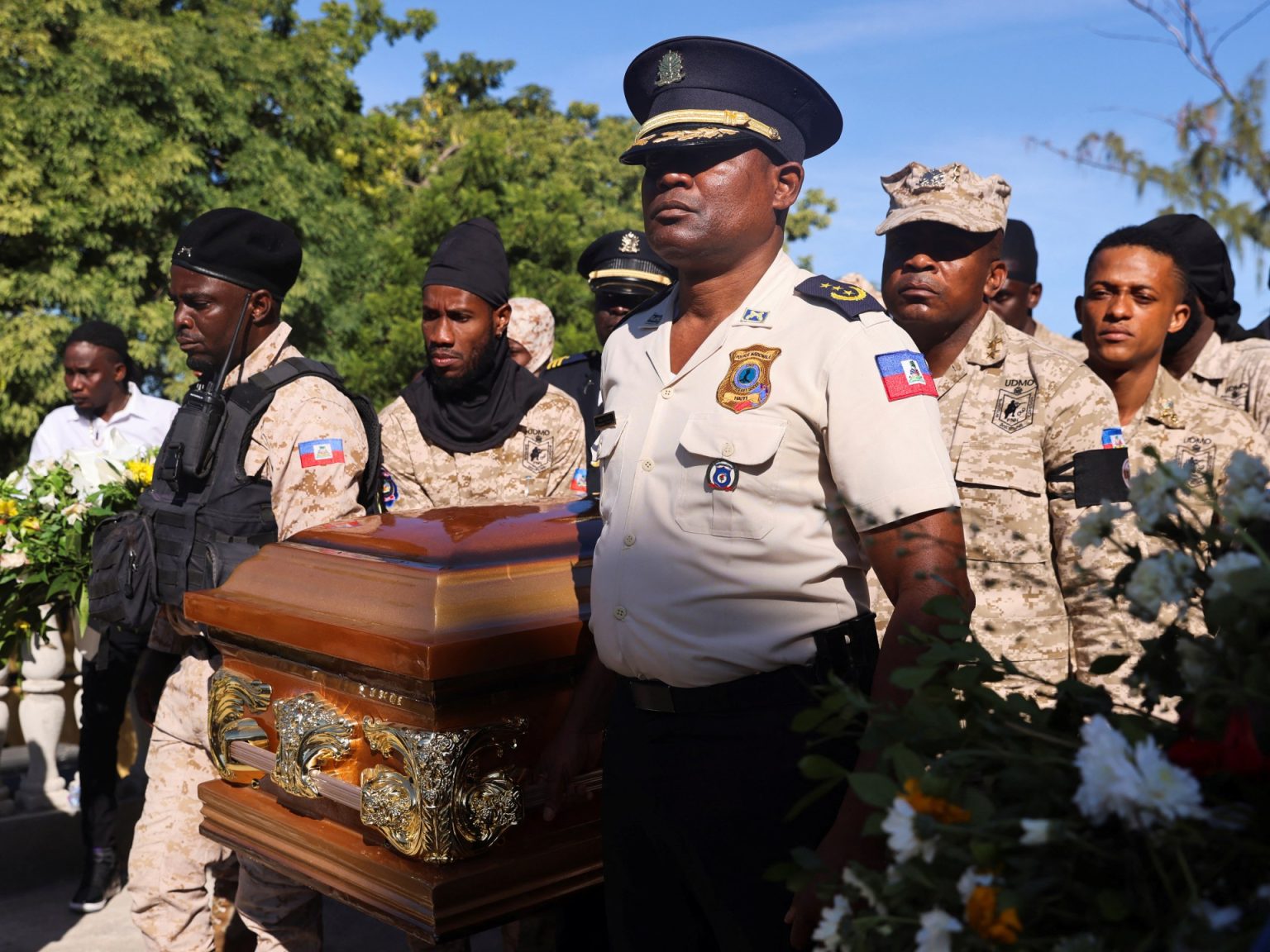The United Nations has confirmed a grim escalation in Haiti’s ongoing gang violence, revising the death toll from a recent massacre in the Cite Soleil slum to a staggering 207. The killings, which transpired between December 6th and 11th in the Wharf Jeremie neighborhood, targeted a diverse cross-section of the community, including elderly individuals and Vodou religious leaders. The UN report paints a chilling picture of systematic brutality, with victims being dragged from their homes and a place of worship, subjected to interrogation, and then summarily executed by gunfire and machetes. Their bodies were then desecrated through burning and discarded into the sea, highlighting the utter disregard for human life that pervades the gang’s operations. This revised death toll, significantly higher than initial estimates by human rights groups, underscores the escalating humanitarian crisis engulfing Haiti and the urgent need for international intervention.
The UN’s investigation provides a detailed account of the massacre, revealing the orchestrated nature of the violence. The gang, led by Micanor Altes, alias “King Micanor,” targeted individuals based on accusations of witchcraft, blaming them for the illness and subsequent death of Altes’s son. This irrational justification for the killings underscores the volatile and unpredictable nature of gang violence in Haiti, where spurious accusations can readily escalate into horrific acts of brutality. The targeted nature of the attacks, including the invasion of a place of worship, demonstrates a calculated effort to sow terror and dismantle community cohesion within Wharf Jeremie. The systematic execution, followed by the deliberate desecration of the victims’ bodies, further amplifies the message of fear and intimidation intended to subdue the local population.
The UN’s Special Representative in Haiti, María Isabel Salvador, has issued a strong condemnation of the massacre, urging the Haitian justice system to conduct a thorough investigation, apprehend the perpetrators, and bring them to justice. She emphasized the imperative of holding not only the direct perpetrators accountable but also those who provide them with support and enable their reign of terror. This call for accountability resonates with the broader international community’s growing concern over the deteriorating security situation in Haiti. The Haitian government, despite its limited control over vast swathes of the capital, has also acknowledged the atrocities and pledged to prosecute those responsible, although their capacity to effectively implement such promises remains severely constrained by the prevailing insecurity.
The Wharf Jeremie massacre is the latest in a horrifying series of gang-related atrocities that have plagued Haiti since the assassination of President Jovenel Moise in 2021. The power vacuum created by Moise’s death has emboldened gangs, leading to a dramatic escalation in violence and a deepening humanitarian crisis. The gangs, vying for control of strategic territories, including ports, highways, and neighborhoods, have unleashed a wave of terror upon the population, displacing thousands and plunging the country into chaos. The escalating violence has severely hampered access to essential services, including healthcare and education, further exacerbating the suffering of the Haitian people.
The UN Security Council, echoing the international community’s apprehension, has condemned the killings and expressed deep concern over the multifaceted crisis gripping Haiti. The council highlighted the alarming levels of food insecurity plaguing the nation and the deplorable practice of child recruitment by gangs, further deepening the humanitarian crisis. The UN’s presence in Haiti has become increasingly precarious, with personnel forced to evacuate or relocate due to escalating insecurity. The closure of Port-au-Prince’s international airport, following gunfire targeting commercial aircraft, has further isolated the country and hindered the delivery of crucial humanitarian aid.
The international community is grappling with the complex challenge of restoring stability in Haiti. The deployment of a Kenyan-led security mission, comprising 400 police officers, has yielded limited success in curbing the pervasive violence. The UN is currently deliberating on the most effective course of action, including the possibility of reinstating a full-scale peacekeeping operation. This option, however, is fraught with complexities, given the mixed results of previous peacekeeping missions, such as the MINUSTAH operation, which concluded in 2017 after a decade-long presence. The UN faces the daunting task of devising a strategy that can address the root causes of Haiti’s instability, rather than merely providing a temporary reprieve from the violence.

